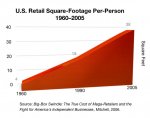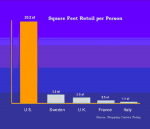YorkshirePete
DP Veteran
- Joined
- Jan 31, 2017
- Messages
- 1,682
- Reaction score
- 247
- Gender
- Undisclosed
- Political Leaning
- Undisclosed
We have advancements in workplace technology waiting in the wings. Implementation is being held back because the average worker can't keep up with the learning curves of repeatedly new technology implantation.
Saw a bbc doc interviewing pa factory workers.
"We just hired 3 new people. Trumps doing what he said!!!!!"



